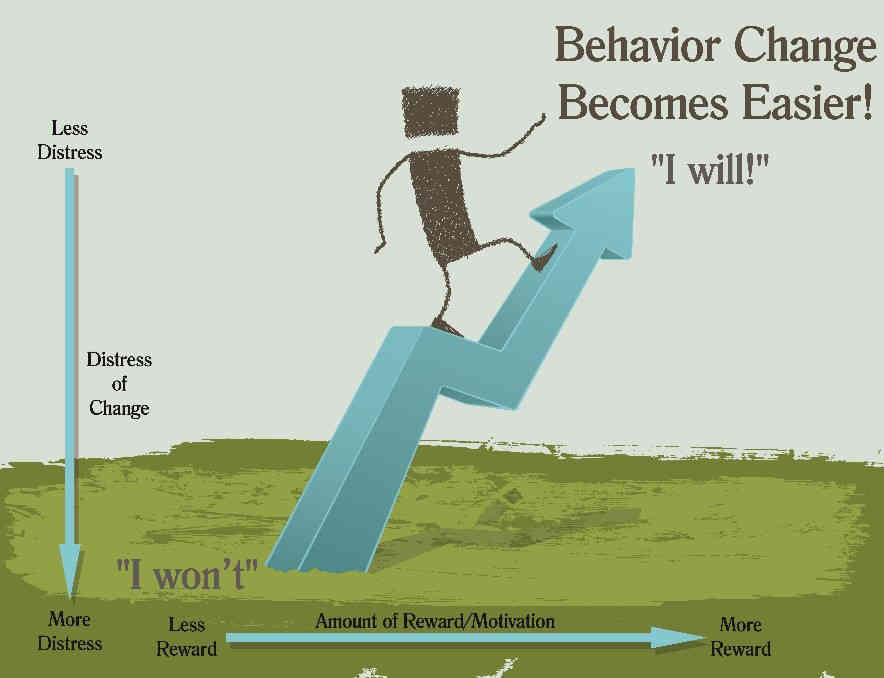Get the Right Help to Feel Better – Call (650) 461-9026 or Text (650) 461-9026
You “Can’t” or You “Won’t” -Making Changes In Therapy
You “Can’t” or You “Won’t”
Making Changes In Therapy
As a mental health therapist (specifically a Cognitive Behavioral Therapist) working with individuals who are expected to exert effort inside and outside of counseling meetings, I sometimes hear “I can’t….”
In traditional talk therapy, this is not much of a problem, but when trying to make substantial, tangible, and rapid progress, a lot is expected from both you and your therapist. This sometimes results in a mismatch between what you desire and want, and what you are willing to do to get those results.
Don’t get me wrong here, I personally know what it feels like to be pushed to do something difficult, or to be pushed in a direction that feels really awkward or way outside your comfort zone. It’s awful, scary, and believe me, I also have frequently fallen into the trap of “I can’t!”. I also believe that this is nothing to be ashamed of and much of what a good therapist does is help navigate these kinds of feelings. I thought it would be interesting to discuss some ideas about this dilemma.
Sometimes, You Really ‘Can’t’ – at Least, Not Yet!
There are legitimate times when it truly is a matter of “I can’t”. For instance, if you were to ask me to run a marathon tomorrow, I am pretty sure I wouldn’t be able to physically do this. I know for sure if you were to tell me to lift a 400-pound dumbbell, I would tell you “I can’t” and this would be true!
But often, when we consider changing our behavior or acting differently, the line between “I can’t” and “I won’t” becomes blurred. To me, “I can’t” implies it’s physically impossible to do something, whereas “I won’t” implies a lack of willingness or desire to do something (sometimes with good reason).
How Badly Do You Want to Achieve Progress?
Our level of motivation or our level of desire seems crucial to our ability to make changes. If you examine the graph below, you will see that the greater the difficulty in making a behavioral change, the more motivation or desire is required for us to make the change. If the perceived reward is high enough, we can do a lot of things, but maybe we “can’t” if we believe we won’t get very much in return.
Ability vs desire? If the distress of the task is high, then the reward or our belief in the reward also needs to be high!
Distinguishing Between “I Can’t” and “I Won’t”
How do you know the difference between a true “I can’t” vs. a hidden “I won’t”? Try the money test (often one of our biggest motivators. Oh! Wait…Is that just me?). Ask yourself: if someone were to offer you $1,000,000, could you do it?
If the answer is “Yes”, then you know for sure it was an “I won’t”, and not an “I can’t”. In a nutshell, if more motivation leads to you being able to do it, then we know you are physically able to do it. It’s a clear example of the old saying: “If there is a will, there is a way”.
The Words That Limit Our Success
I used to struggle intensely with “I cant’s” when people wanted me to do public speaking. The amount of anxiety and fear I felt often left me convinced that I couldn’t do it. This allowed me to avoid public speaking, and kept me “safe”. But it also left me stuck, anxious, and unhappy with myself. Then I was offered employment that required public speaking, and I clearly saw the personal benefit of getting over this hurdle, so I got to work on the problem.
Many of us tell ourselves we can’t exercise when we are out of shape, or when we are depressed, we may tell ourselves that we “can’t” get out of bed or engage in social activities that day. The words “I can’t” may appear harmless, but their impact on our ability to make exciting changes and get powerful results can be enormous!
Know the Difference Between Your Real Limits and Your Motivation
It may seem insensitive to question someone else’s desires and abilities in this way: “You can’t” or “You won’t”? But the answer to this question can often lead you to a powerful discovery and much desired results. If we can be real with ourselves and truly answer “I would rather not”, or “I won’t” we at least know where we stand in terms of making progress, and we can address the real issue, or decide that this is not an area in which we are willing to make changes.
Discovering that you “can” or at least that you’re willing to try, could be the turning-point that removes your self-imposed barriers and sets you free from the limitations you have created for yourself.
Contact us to schedule an appointment by calling 650-461-9026 or clicking to our contact us page, we will get back to you shortly.


